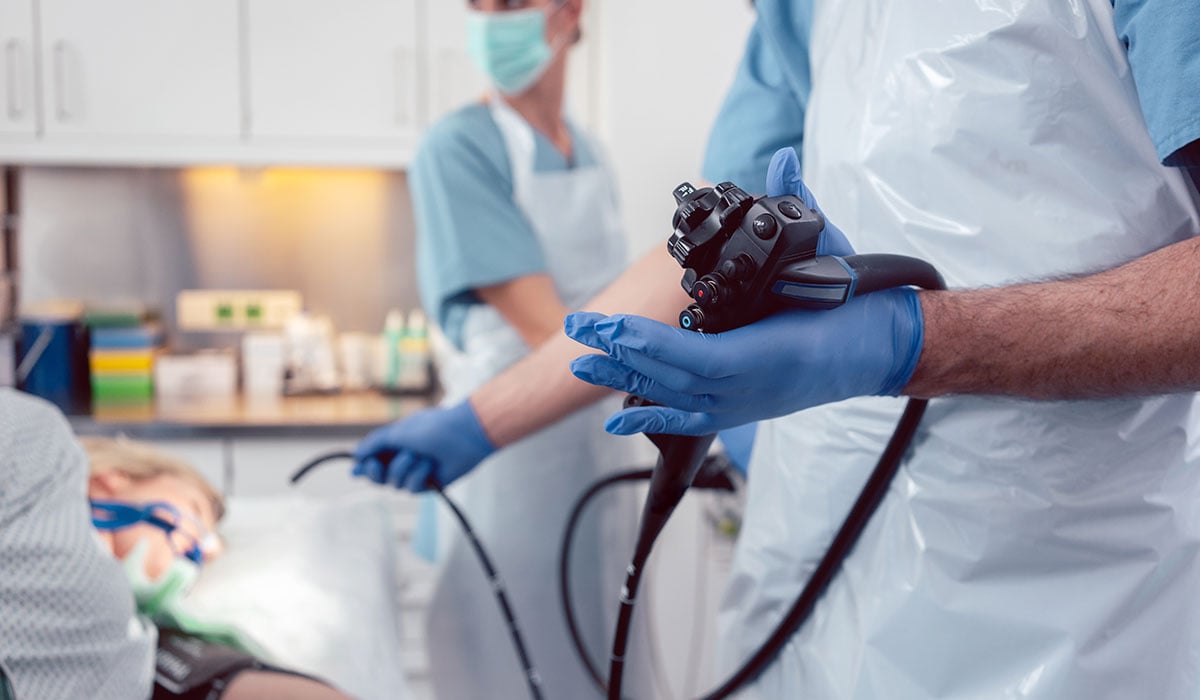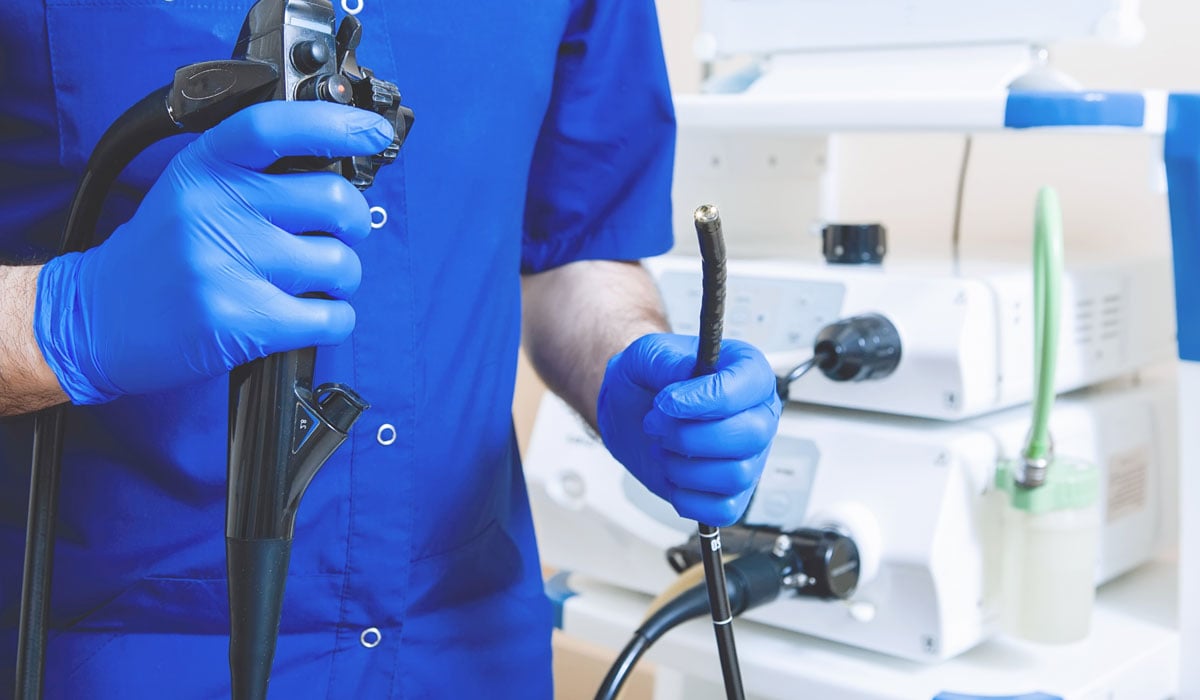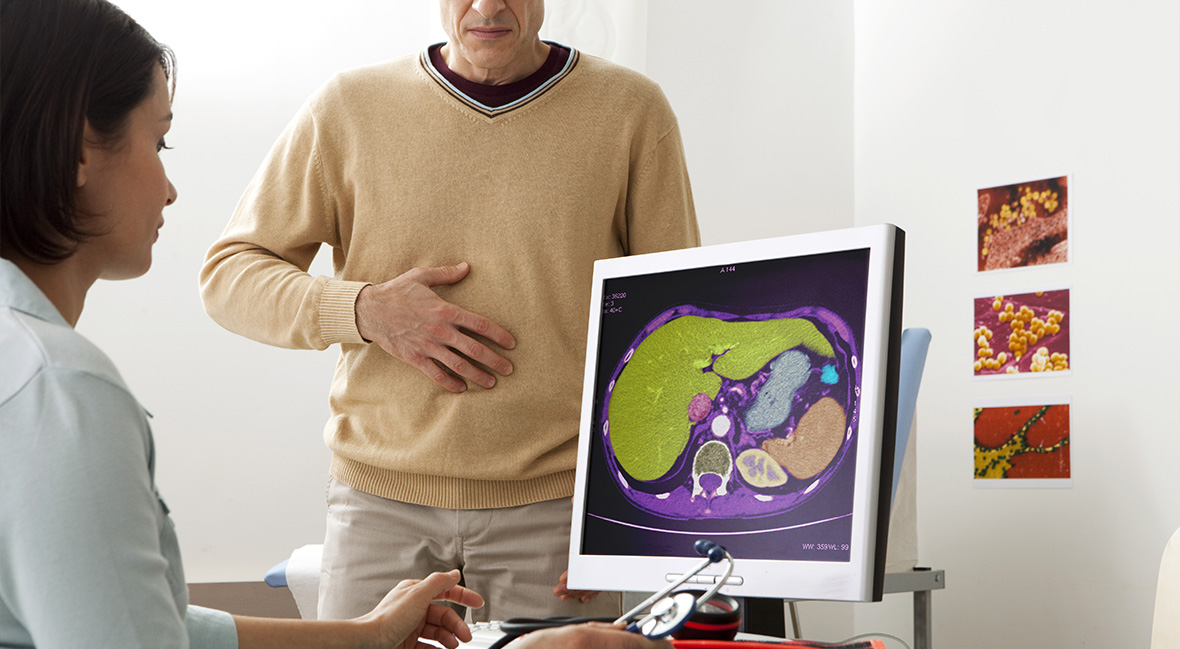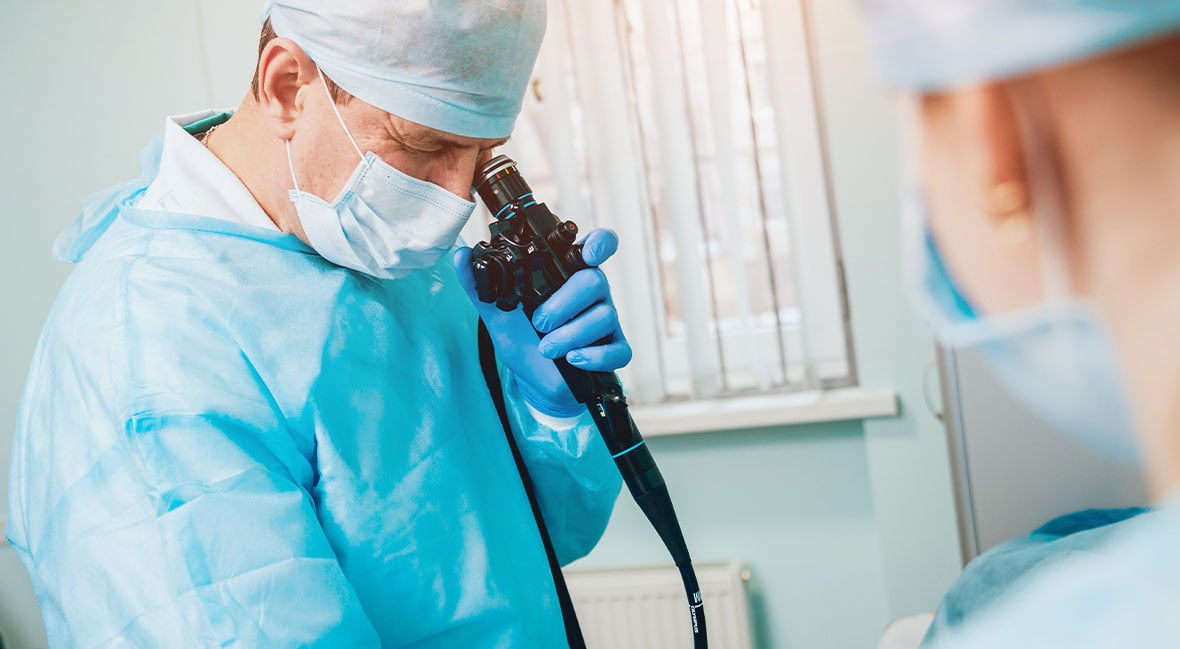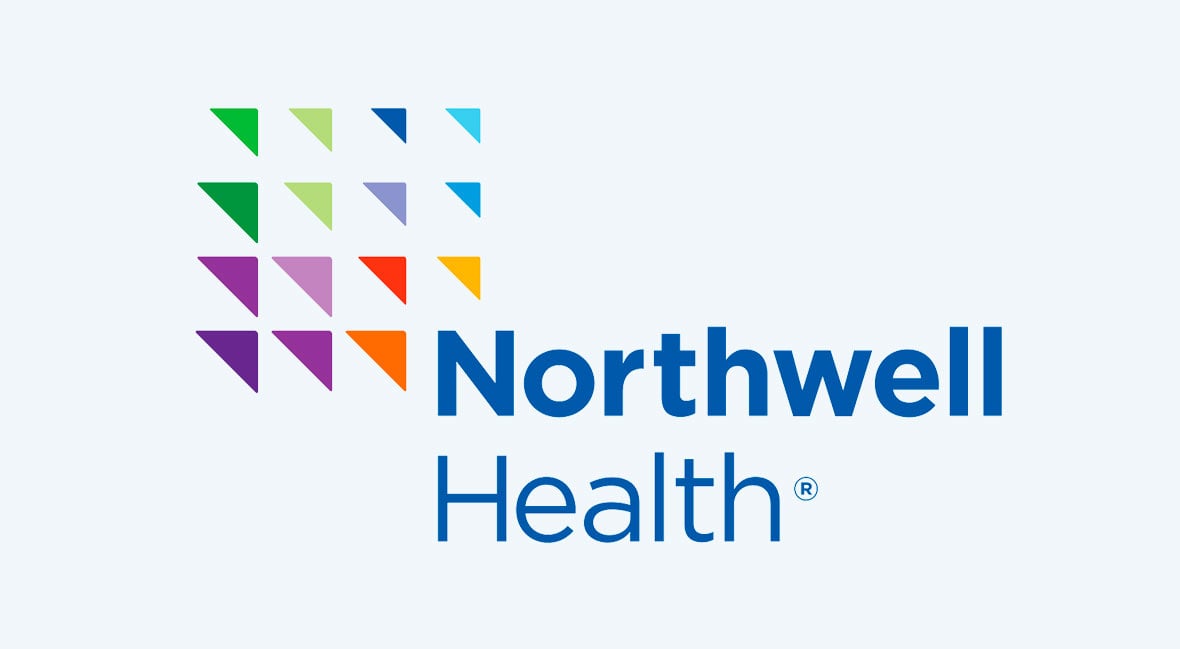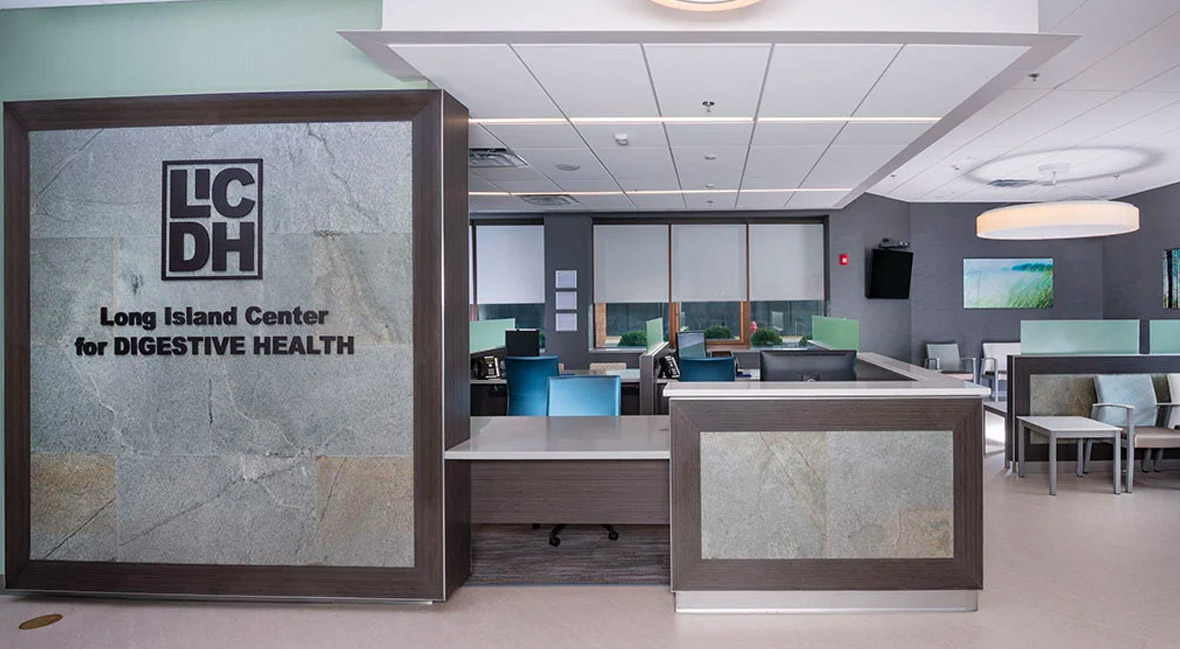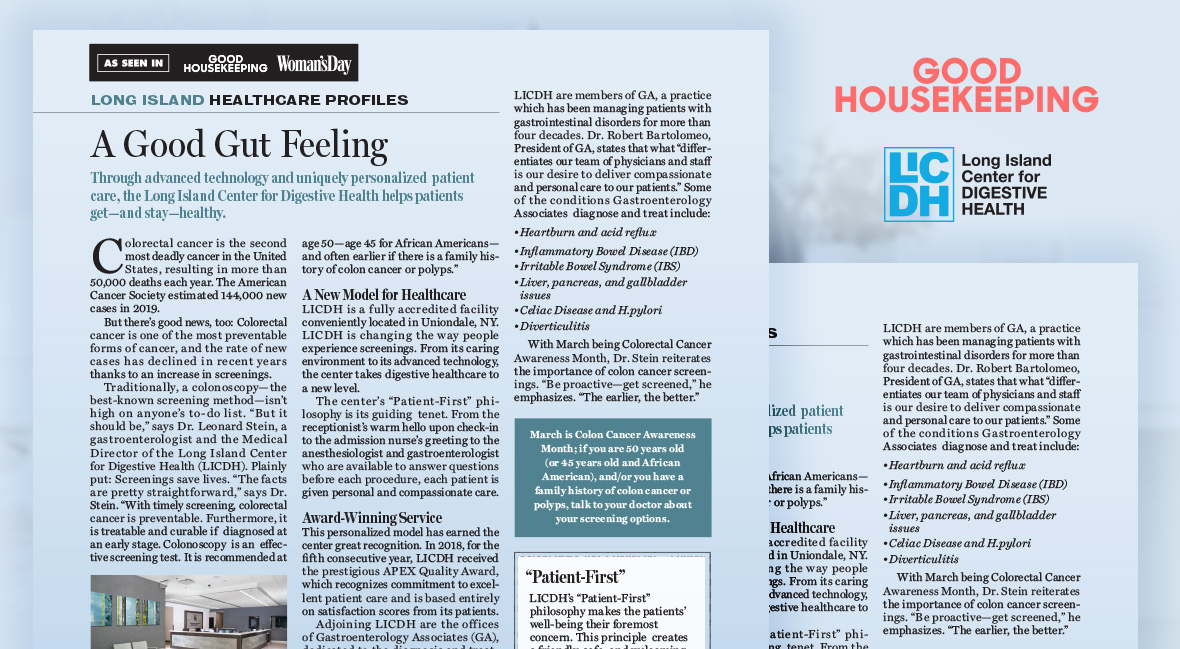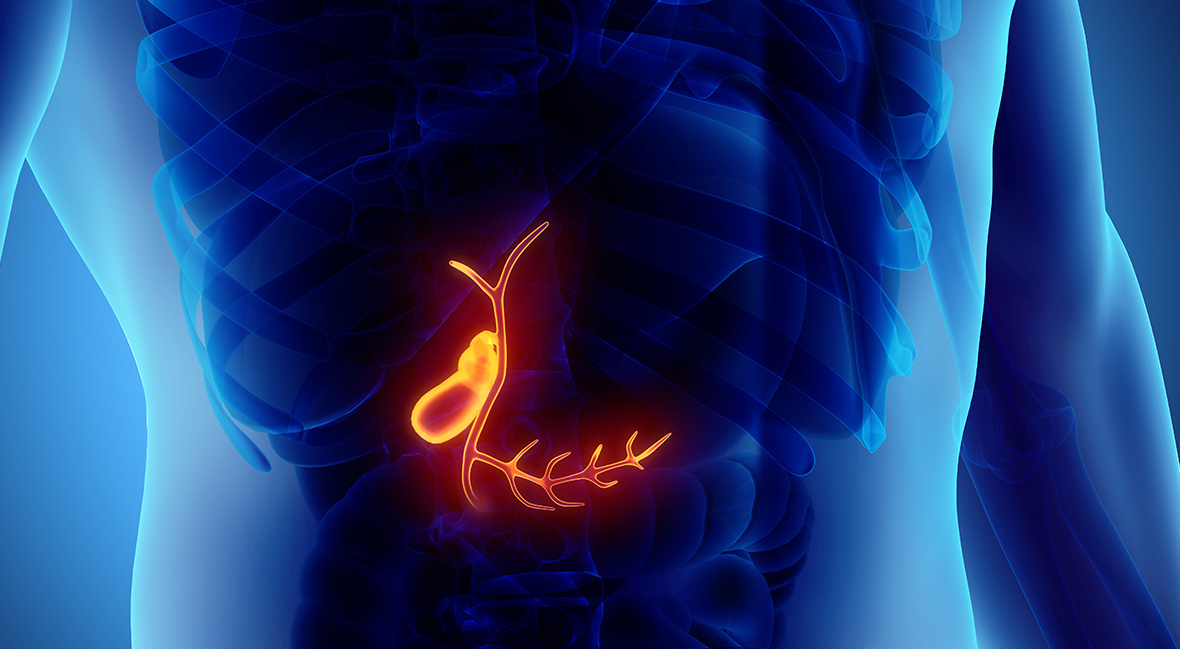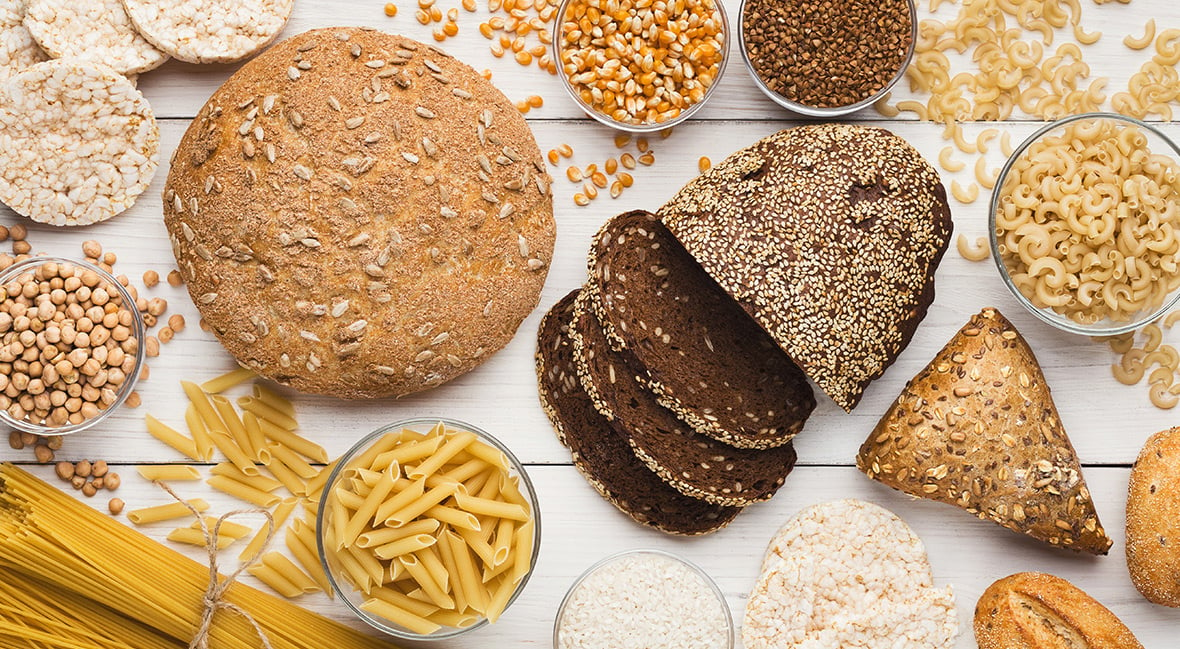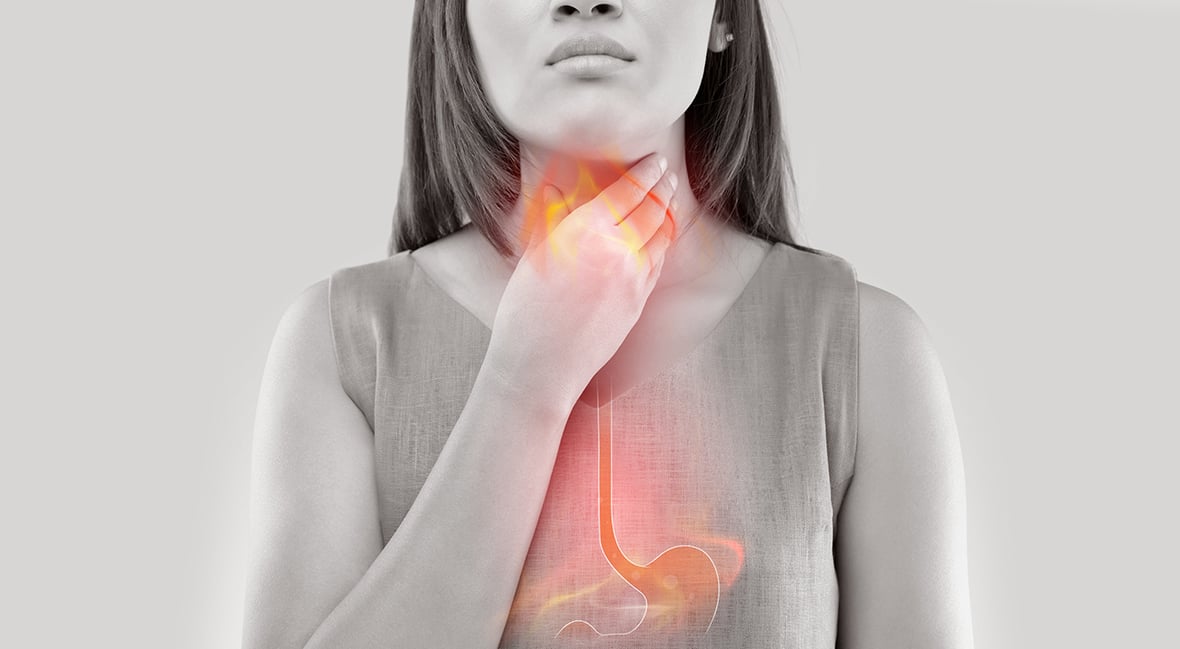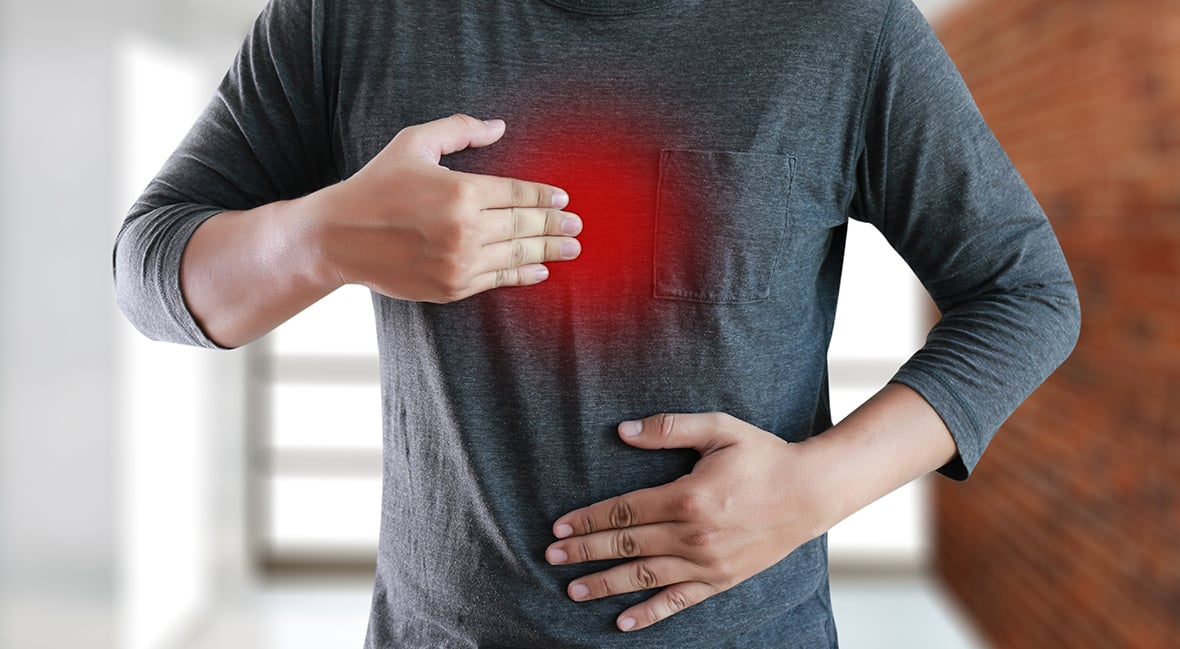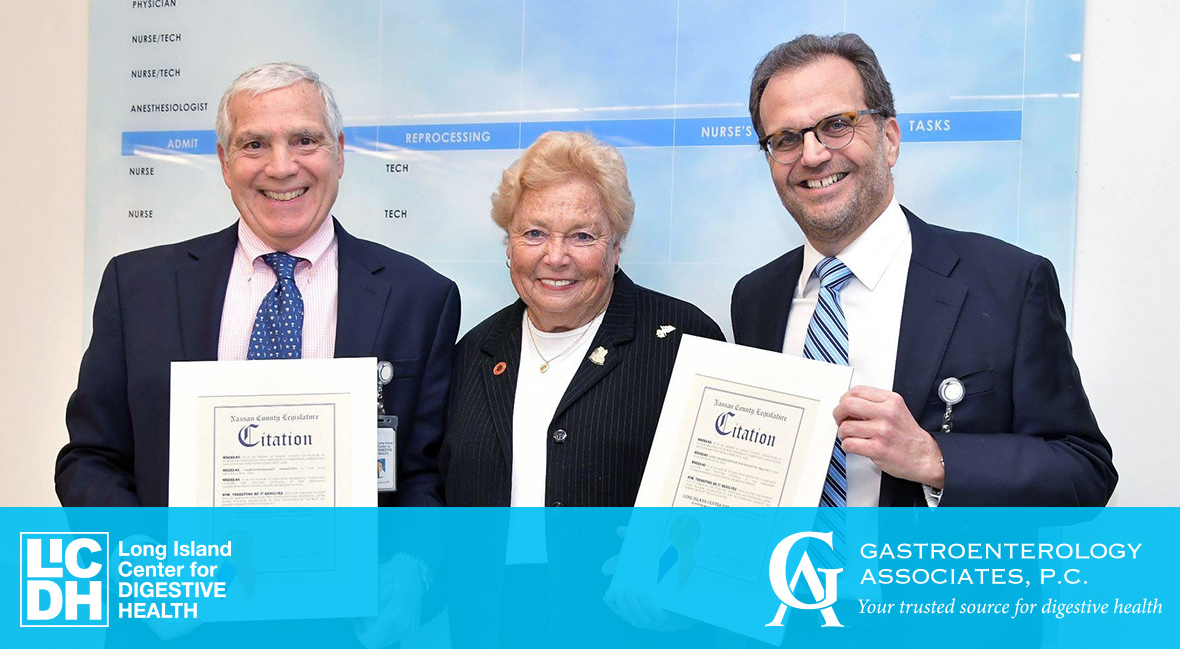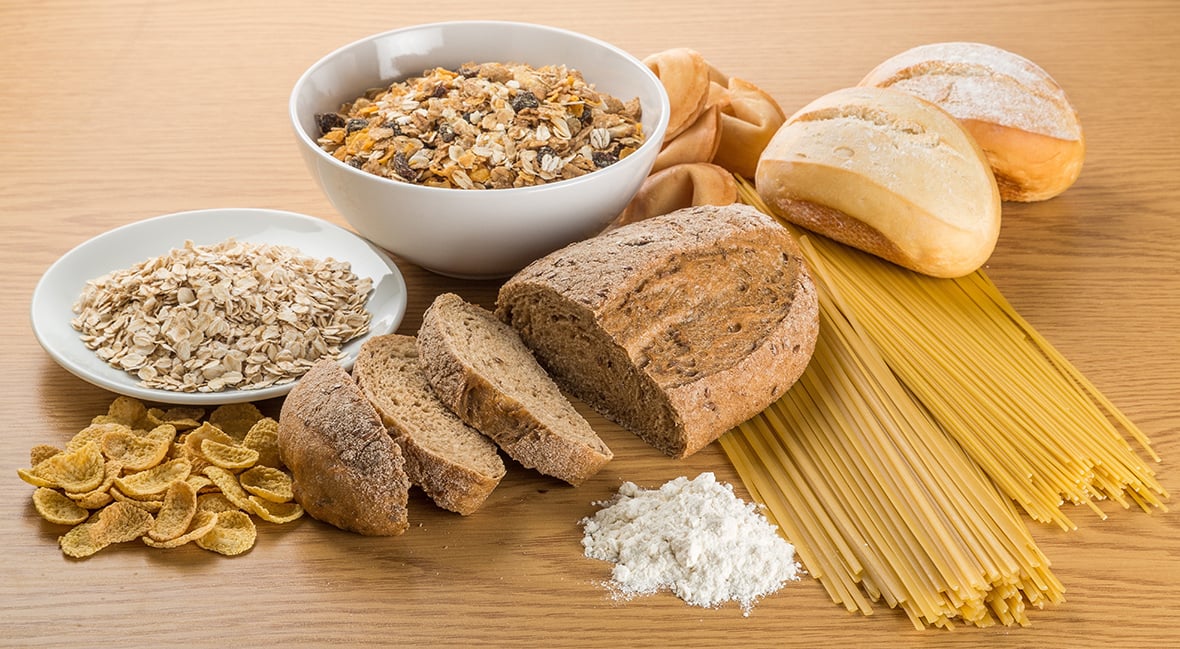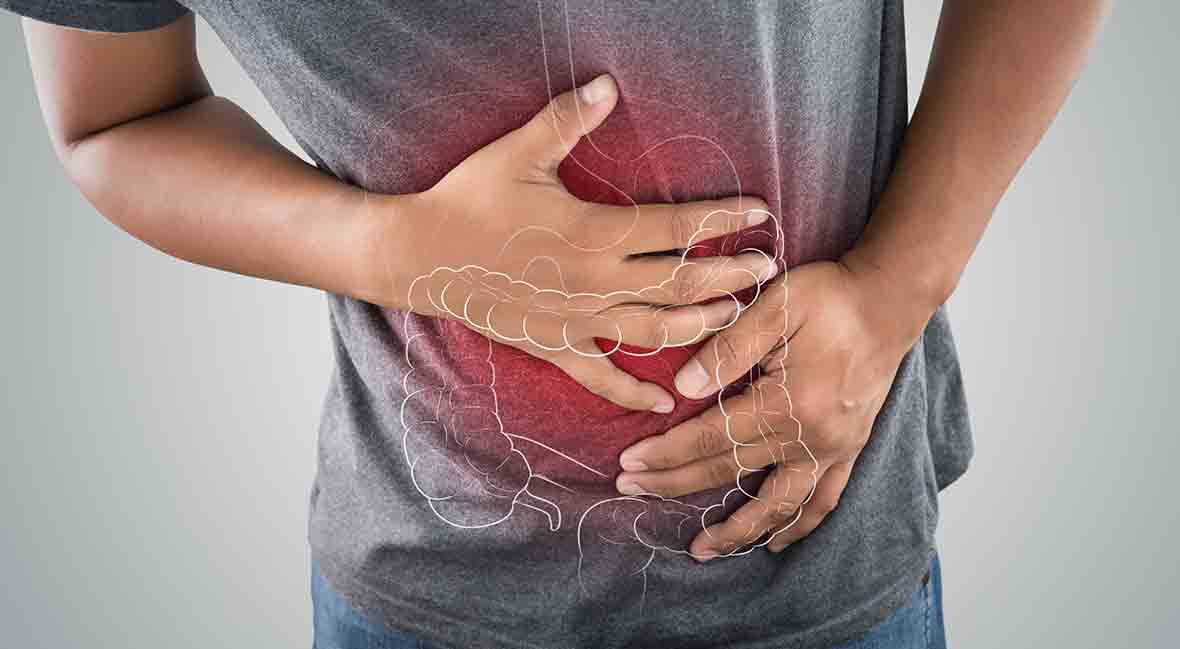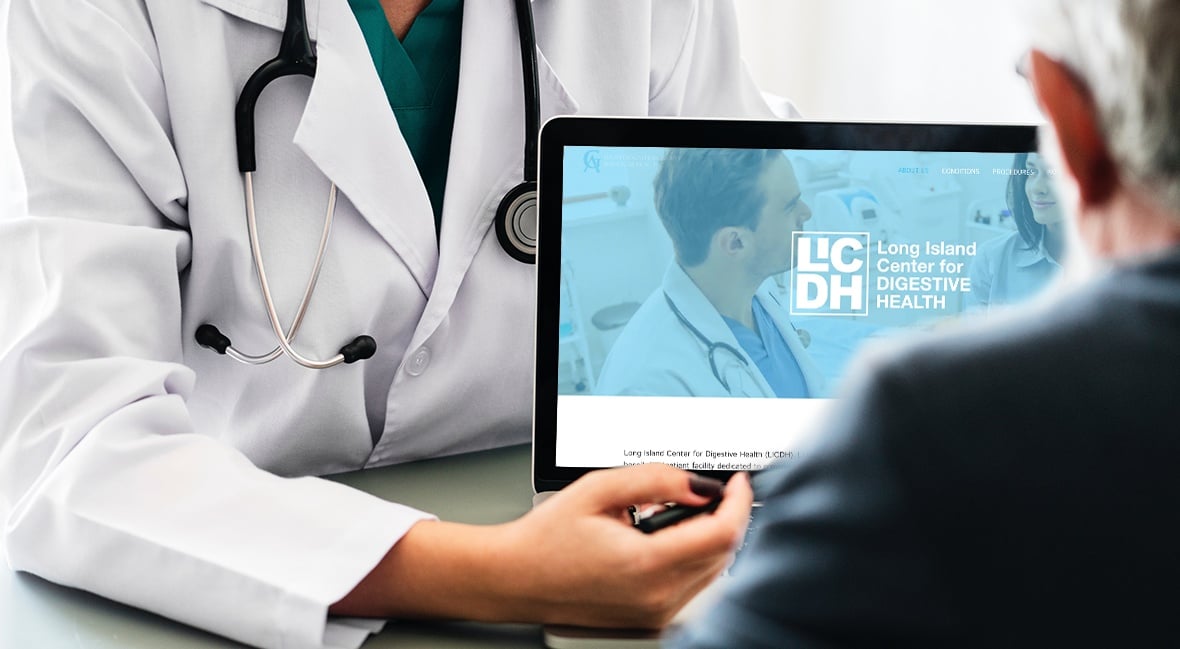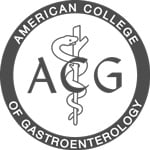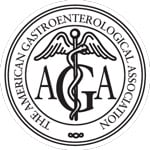All Articles by Gastroenterology Associates
Understanding Upper Endoscopies: What You Need to Know
Doctors may recommend a screening process called an upper endoscopy for those experiencing digestive system problems. These are safe and effective methods of examining the digestive tract.
Read Now
Signs You Need to See a Gastroenterologist
If you’ve been experiencing any number of digestive issues—from trouble swallowing to unexplained stomach pains or rectal bleeding—your doctor may recommend you visit a gastroenterologist.
These specialists excel at screening, diagnosing, and treating a wide range of digestive conditions and disorders, mainly focusing on the digestive tract, stomach, gallbladder, colon, liver, bile ducts, and pancreas.
Read Now
Warning Signs of Pancreatitis
Pancreatitis is a potentially serious condition affecting the pancreas, and while not especially common, if left untreated could develop life-threatening conditions such as organ failure, and be fatal.
More than 200,000 acute pancreatitis hospitalizations occur in the United States per year, with these figures rising, according to a report published by the National Library of Medicine. When properly treated, many pancreatitis cases improve quickly without any long-term issues—which is why identifying early warning signs can be so important.
Read Now
What You Need to Know About Colonoscopies
If you’re looking to address a specific medical concern or reach a higher-risk age group, your doctor may suggest a colonoscopy. While it may seem daunting at first, this procedure is quick, safe, and highly effective at identifying and locating issues within the colon and rectum.
Read Now
What You Need to Know About Capsule Endoscopy
For those suffering from bleeding, inflammation, or other issues along their digestive tract, your doctor might recommend a capsule endoscopy for a closer look at what the problem could be.
Read Now
Signs & Symptoms of Non-Celiac Gluten Sensitivity
Although gluten sensitivity is most commonly associated with Celiac disease—a disorder impacting approximately 2 million people in the United States characterized by severe gluten intolerance—there is a milder form of the condition known as non-Celiac gluten sensitivity (NCGS). Specialists estimate 1% to 3% of the population have NCGS.
Read Now
What Are Celiac Disease & H. Pylori Infection?
Celiac disease and Helicobacter pylori (H. pylori) are two gastrointestinal conditions that present symptoms including abdominal pain, bloating, gas, and weight loss. If left untreated, both conditions can have severe consequences, so it’s important to understand these disorders, their symptoms, diagnosis, and treatments.
Read Now
Conditions Affecting the Liver, Pancreas & Gallbladder
The liver, pancreas, and gallbladder make up the biliary system, a portion of the digestive system known for absorbing nutrients and disposing of waste. This network can be affected by several conditions ranging from ascites to pancreatic cancer.
Read Now
Irritable Bowel Syndrome: Triggers, Symptoms, Diagnosis & More
Irritable bowel syndrome (IBS) is a common chronic gastrointestinal condition that affects the large intestine. An estimated approximately 10 to 15 percent of the world’s population is affected by this disorder, which is also believed to impact between 25 and 45 million people in the United States.
Read Now
What Is Inflammatory Bowel Disease?
Approximately 3 million Americans have some form of inflammatory bowel disease (IBD)—an illness defined by the Centers for Disease Control and Prevention (CDC) as “a term for two conditions (Crohn’s disease and ulcerative colitis) that are characterized by chronic inflammation of the gastrointestinal (GI) tract.” If left untreated, prolonged inflammation can result in major damage to the GI tract.
Read Now
What to Expect: Colonoscopy vs. Upper Endoscopy
A colonoscopy and upper endoscopy are two procedures performed frequently by gastroenterologists to view and examine various portions of your digestive tract. Colonoscopies inspect the large intestine (colon and rectum) while upper endoscopies observe the esophagus, stomach, and first part of the small intestine.
Read Now
Dietary Protocols Before & After an Endoscopic Procedure
Seventy-five million endoscopic procedures are performed each year in the United States, of which 51.5 million are gastrointestinal endoscopies. While a colonoscopy may be the most common, with 19 million annually, there are several others, each requiring specialized dietary guidelines before and after the examination.
Read Now
Heartburn, Acid Reflux & GERD: What You Need to Know
Although many believe heartburn, acid reflux, and gastroesophageal reflux disease (GERD) are one in the same, they’re actually three distinct conditions. However, they are related, as acid reflux causes both heartburn and GERD, and heartburn is a symptom of both acid reflux and GERD.
Read Now
What Is Colon Cancer & How Can I Prevent It?
Colon cancer arises in the colon aka large intestine, the 5- to 6-foot tube connecting the small intestine to the rectum, its final several inches. This digestive organ transports and processes food through several segments—including the cecum, ascending, transverse, descending, and sigmoid. Abnormal cells can develop in the lining of its wall or rectum. These can multiply uncontrollably and become cancerous, impacting the entire digestive system, and ultimately, causing death.
Read Now
Celiac Disease: How to Identify Symptoms
Celiac disease is often misunderstood and can go undiagnosed because of its similarity with other disorders. Symptoms can manifest differently for people based on factors such as age and gender, and recognizing them on your own can be difficult.
Read Now
What Is Lynch Syndrome?
Genetics and family history can often play a significant role in a person’s health, and those who have a strong history of certain cancers within their family can benefit from speaking to their doctor and inquiring about Lynch syndrome.
Read Now
Eosinophilic Esophagitis
Those with esophageal inflammation experiencing difficulty swallowing or frequently getting food stuck in their esophagus may be diagnosed with eosinophilic esophagitis. This relatively newly recognized disease can result in damage to the lining of your esophagus, which can worsen over time if untreated.
Read Now
Eating After Esophageal Dilation
If you experience difficulty swallowing, your doctor may recommend esophageal dilation—a non-surgical, endoscopic procedure that carefully stretches your esophagus to counteract abnormal narrowing. Aftercare includes paying particular attention to your diet, as dilation can cause bruising and soreness.
Read Now
How To Improve Your Gut Health
The gut plays an important, though often overlooked, role in maintaining a healthy lifestyle. There’s a direct connection between your gut microbiome and management of digestive diseases, such as inflammatory bowel disease (IBD). Furthermore, research indicates that poor gut health can exacerbate depression and anxiety. In short: Actively working toward improving your gut health can potentially help with your overall physical and mental well being.
Read Now
Gastroenterology Associates Is Joining Northwell Health
It is our great pleasure to announce that on November 2, 2020, we will be joining Northwell Health and its physician organization, Northwell Health Physician Partners.
We will continue to provide care for you in our current office at 106 Charles Lindbergh Blvd., Uniondale, and will maintain privileges at NYU-Winthrop Hospital.
Read Now
Living With Celiac Disease
Not long ago, being diagnosed with celiac disease was a lifetime sentence of extremely limited choices. Gluten-free breads and pastas were rare and pricey, and going out to eat at restaurants meant not only explaining your allergy but likely being relegated to the salads or, if you were lucky, a soup or two.
Read Now
LICDH Will Be Re-Opening On June 1
Read Now
Maintaining Digestive Health During Lockdown
The COVID-19 pandemic has chased everyone indoors and limited our ability to do day-to-day tasks, such as grocery shopping. For some, this is simply an inconvenience, but if you’re one of the 60 to 70 million Americans living with a digestive disease, limited access to food can have serious consequences for your health and well-being.
Read Now
A Letter From Gastroenterology Associates and Long Island Center for Digestive Health
To Our Patients,
Read Now
Gastroenterology Associates Will Provide Telemedicine Appointments During COVID-19
The rapid spread of the novel coronavirus (COVID-19) has forced medical professionals nationwide to reconsider how to continue to care for their patients while preventing further infections.
Read Now
LICDH Discusses Colorectal Cancer In This Month's Good Housekeeping
Just in time for Colorectal Cancer Awareness Month, LICDH was featured in the Long Island Healthcare Profiles section of both Good Housekeeping and Woman's Day.
Read Now
The Importance of Colorectal Cancer Awareness
March is National Colorectal Cancer Awareness Month. Regular screenings are key to early detection and prevention and can make all the difference.
Read Now
The Truth About GERD Treatment
When you suffer from gastroesophageal reflux disease (GERD), also known as chronic heartburn or acid reflux, finding the right treatment can be tricky. While there’s no shortage of internet advice on at-home treatments and alternative therapies, the truth is that GERD is best treated with the help of a professional.
Read Now
Is Esophageal Dilation Right for You?
If you are experiencing difficulty or pain when swallowing food, you may have a condition that can be treated with esophageal dilation. The following is a helpful explainer about what this procedure involves, the types of conditions it can help treat, and more.
Read Now
Lactose Intolerance 101
According to the U.S. National Library of Medicine, about 65 percent of the human population has a reduced ability to digest lactose after infancy. Of that, the Cleveland Clinic, a nonprofit academic medical center in Ohio, estimates 30 to 50 million Americans have some degree of intolerance.
Read Now
LICDH Wins Fifth Consecutive APEX Award
At Long Island Center for Digestive Health (LICDH), patient care is at the heart of everything we do. Nothing is more important to our highly skilled medical team than ensuring that every patient gets the care and attention they deserve.
Read Now
What Do Gallstones Feel Like?
One of the most common causes of gallbladder pain are gallstones—hardened deposits of digestive fluid, also called gallstone disease, or cholelithiasis. Gallstones may never manifest symptoms, but if they move to block the bile duct or the gallbladder (cholecystitis), they can cause severe pain, and may call for surgical removal of the gallbladder, a procedure called a cholecystectomy.
Read Now
How Do You Get H. Pylori?
Helicobacter pylori, or H. pylori, is a type of bacteria that may infect the stomach lining. It is estimated that much of the world’s population has H. pylori in their system, but not everyone harboring the bacteria will experience symptoms of an associated infection.
Read Now
How to Go Gluten-Free
Those living with celiac disease or another form of gluten sensitivity are warned to eliminate gluten entirely from their diets to avoid inflammation and other side effects associated with ingesting the protein. Many who do not suffer from this intolerance are also discovering that maintaining a gluten-free diet could be a healthy alternative to their current Western diets, which are typically laden with gluten-containing products, such as bread, cereals, baked goods, pasta, etc.
If you are looking to kick gluten for any reason, here are several helpful tips for a smooth transition:
Read Now
What Causes Acid Reflux?
Acid reflux happens when the lower esophageal sphincter (LES), a ring of muscle between the esophagus and stomach, does not operate correctly. The job of the lower esophageal sphincter is to relax to let food pass through to the stomach, then close to prevent stomach acid from creeping into the esophagus. When the tissue is weakened or malfunctions in some way, stomach acid may splash back into the esophagus and cause inflammation that we often refer to as “heartburn.”
Read Now
What Is GERD?
In the medical world, GERD is an acronym for Gastroesophageal reflux disease. It’s a digestive disorder related to the lower esophageal sphincter (LES), a ring of muscle between the esophagus and stomach.
Normally, the LES relaxes and opens its ring to allow food to enter the stomach, then closes back up. With GERD, the LES is weakened or moves in an abnormal way that leaves the passageway open for stomach acid to splash back up into the esophagus. Your stomach is equipped to handle the stomach acid, but over time, that same stomach acid could be erosive to your esophagus. The inflammation caused by stomach acid is referred to as acid reflux, or often felt as heartburn.
Read Now
Catch Colorectal Cancer Early
Together, colon and rectal cancers (often referred to as colorectal cancer) are the third most common type in the United States, with an estimated 145,600 new cases and 51,020 deaths expected in 2019. You can significantly lower your risk of developing advanced colorectal cancer by knowing your risks and taking proactive screening measures to detect polyps. If all adults over the age of 45 received preventative screening, as is recommended by the American Cancer Society, thousands of colorectal cancer-related deaths could be avoided, each year.
Read Now
Doctors & Survivors Stress Prevention at Gastroenterology Associates' Annual Colorectal Cancer Awareness Event
To raise awareness about the dangers of colorectal cancer, also known as colon cancer, Gastroenterology Associates (GA)—one of the largest gastroenterology practices on Long Island—hosts an annual gathering of doctors, staff, lawmakers, and patients at its partner outpatient facility, Long Island Center for Digestive Health (LICDH). Its goal is to decrease the incidence of colon cancer, and increase early detection. [VIDEO]
Read Now
Watch Out for These Colorectal Cancer Symptoms
Colorectal cancer (CRC), also called colon cancer, occurs in the last two parts of the digestive tract: the large intestine, or colon, and rectum. Symptoms of colorectal cancer include persistent abdominal pain, changes in bowel habits, and blood in the stool.
Read Now
Colorectal Cancer Stages
When a patient is diagnosed with colorectal cancer, one of the first questions they’ll want to be answered is: “What stage is it?” Stages of colon cancer, like most others involving a tumor, are broken down into five groups, labeled 0 to 4. The numbers increase with the severity of the disease.
Read Now
Eating With Celiac Disease
People with celiac disease must maintain diets completely devoid of gluten to avoid aggravating symptoms that damage the bowel. A diagnosis may seem severely limiting, with an endless sea of "no"—no bread, no pasta, no beer—but with some nutritional guidance, celiac patients can enjoy delicious meals with the same confidence the unafflicted may take for granted.
Read Now
Ulcerative Colitis 101
Ulcerative colitis (UC) is one of two common forms of inflammatory bowel disease (IBD). The other is Crohn's disease. Both are chronic conditions—there is no cure for IBD—with some important differences. While Crohn's may affect any portion of the gastroinstestinal tract, for example, ulcerative colitis tends to only impact the innermost lining of the colon (large intestine) and rectum.
Read Now
What Are the Symptoms of Crohn's Disease?
Crohn's disease is a chronic inflammatory gastrointestinal condition, and one of the two most common forms of Inflammatory Bowel Disease, or IBD. The other is ulcerative colitis. First described by Dr. Burrill B. Crohn in 1932, Crohn’s disease can affect any part of the digestive tract, from the mouth to the anus, whereas ulcerative colitis strictly impacts the colon.
Read Now
Do You Have IBS? (Quiz)
Irritable Bowel Syndrome (IBS) is a functional gastrointestinal disorder (FGID) associated with varying triggers, including stress, depression, anxiety, or previous intestinal infection. Approximately 10% of people suffer from IBS, making it the most common FGID.
Read Now
7 Proactive Steps Toward a Safer Colon
Your colon is an integral part of your digestive system. This year, an estimated 97,220 people in the United States will be diagnosed with colon cancer, also known as colorectal cancer.
Read Now
Long Island Center for Digestive Health Wins APEX Quality Award
We’re Honored!
Long Island Center for Digestive Health (LICDH) proudly announces we have been named the recipient of the 2017 APEX Quality Award, for the fourth consecutive year.
Read Now
Understanding Gallbladder Pain
The pain associated with gallstones (cholelithiasis) and gallbladder inflammation (cholecystitis) can be excruciating. Consequently, learning how to properly identify and remedy such attacks is mission critical.
The following breaks down the fundamental facts about the gallbladder and this common condition affecting approximately 10 to 15 percent of the U.S. adult population—with about 1 million cases presenting annually—including preventative measures and treatment options.
Read Now
Start Spreading the News: It's Colorectal Cancer Awareness Month
March is National Colorectal Cancer Awareness Month! That means it’s the perfect time for healthcare providers and their patients to join forces in continuing to spread awareness about the disease itself, as well as about screening, prevention, and treatment.
Read Now
Stress-Free Upper Endoscopy Preparation Guide
An upper endoscopy (or EGD) is a simple and safe procedure that benefits the lives of millions of Americans each year. Still, we know that scheduling an upper endoscopy could be intimidating, so we put together some information to shed light on the procedure and preparation guidelines to alleviate some of your worries.
Read Now
Lawmakers & Survivors Join Gastroenterology Associates In Raising Colorectal Cancer Awareness
In what has become an important annual tradition of spreading vital information in the ongoing battle against colorectal cancer, local lawmakers including U.S. Rep. Kathleen Rice and Nassau County Legis. Rose Walker once again joined doctors, staff, and patients of Gastroenterology Associates—one of the largest gastroenterology practices on Long Island—for a special recent gathering at its outpatient facility Long Island Center for Digestive Health in Uniondale to raise awareness about this deadly disease.
Read Now
Stay Connected: Subscribe to our blog
By subscribing, you’ll receive notifications regarding health and wellness, your diet, and more



